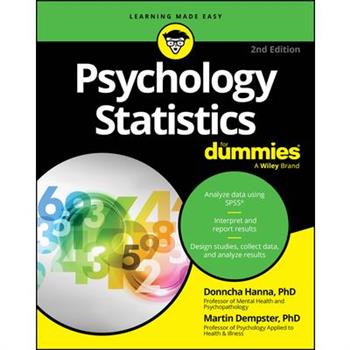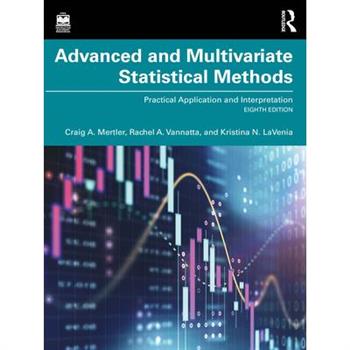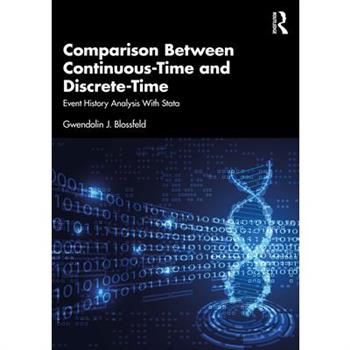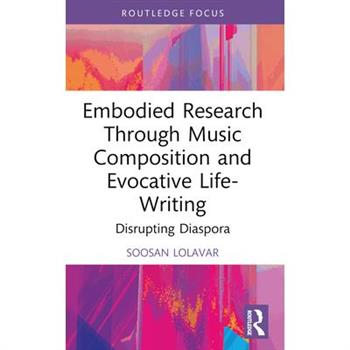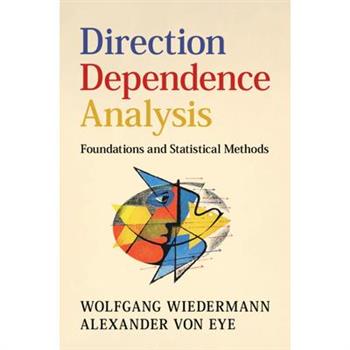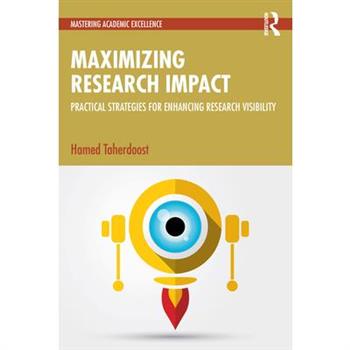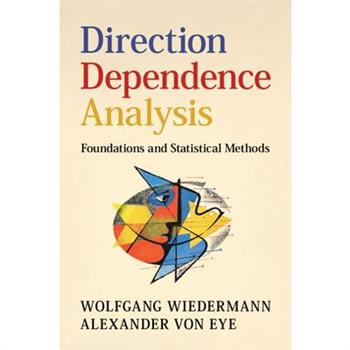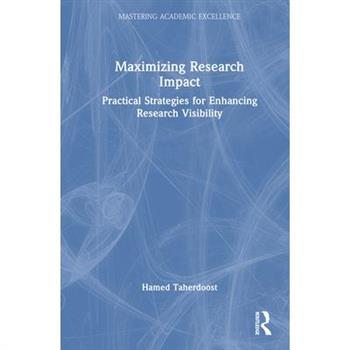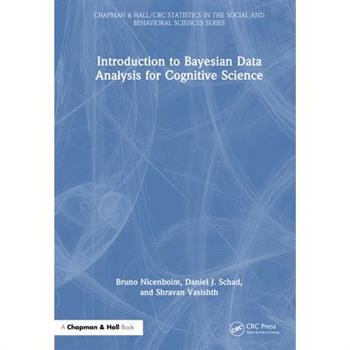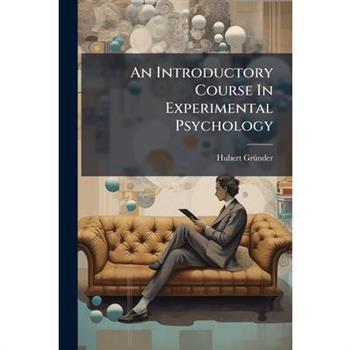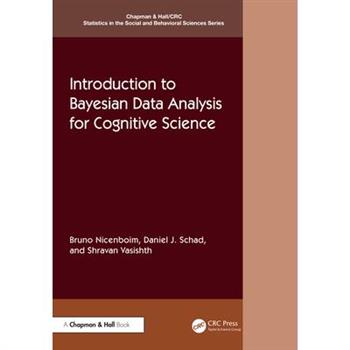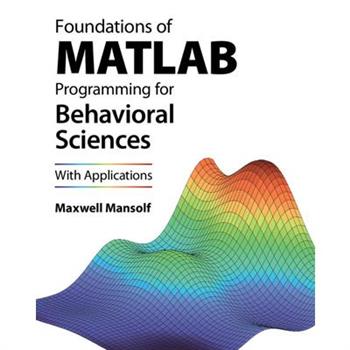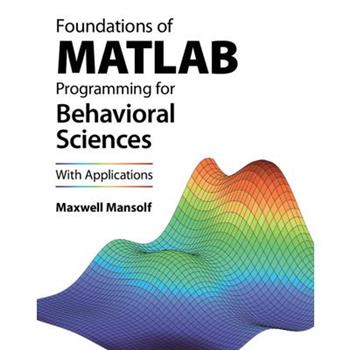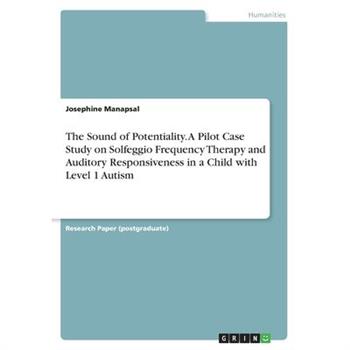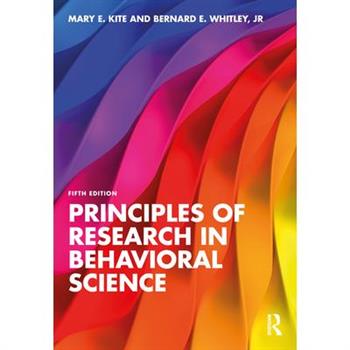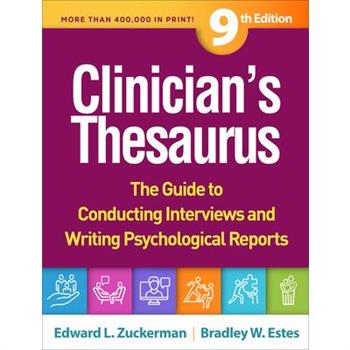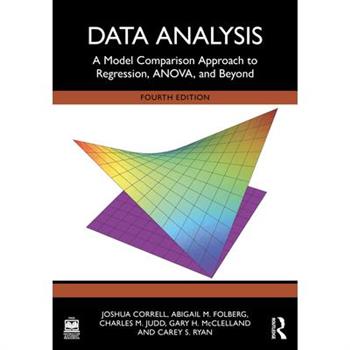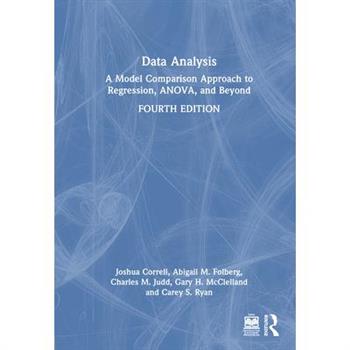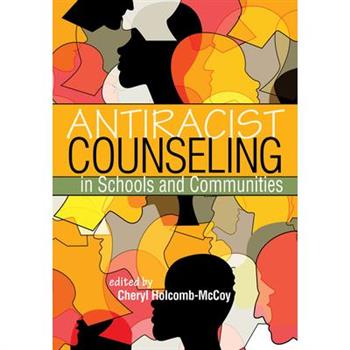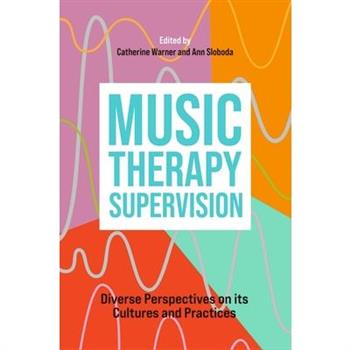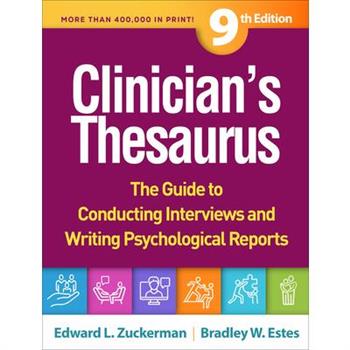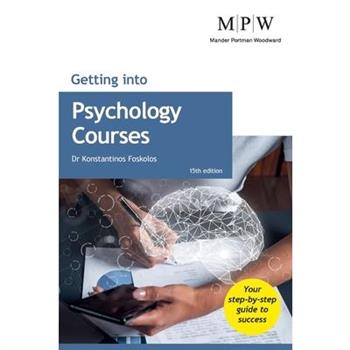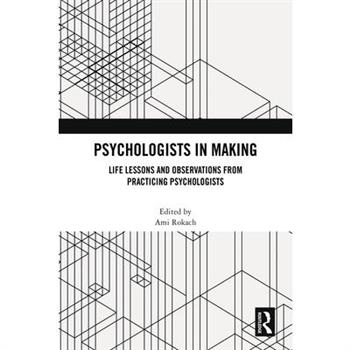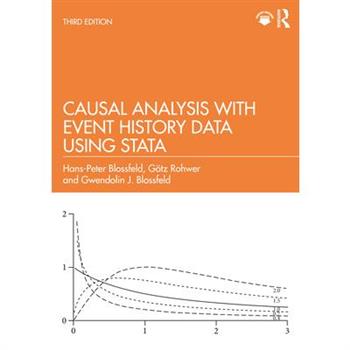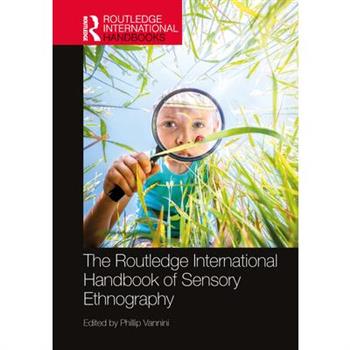Psychology Statistics for Dummies
Untangle statistics and make correct, dependable conclusions Psychology Statistics For Dummies, 2nd Edition makes statistics accessible to psychology students, covering all the content in a typical undergraduate psychology statistics class. Built on a foundation of jargon-free explanations and real-life examples, this book focuses on information and techniques that psychology students need to know (and nothing more). You'll learn to use the popular SPSS statistics software to calculate statistics and look for patterns in psychological data. And, this helpful guide offers a brief introduction to using the R programming language for statistical analysis--an increasingly important skill for the digital age. You'll also find hands-on practice exercises and examples using recent, real datasets. Explore the use of statistical analysis in research for the psychology field Master basic statistics concepts such as means, standard deviations, and correlations Conduct data analysis using the SPSS software package Get clear explanations of everything in your psychology statistics course, so you can pass with flying colors This guide is perfect to use as a readable supplement to psychology textbooks and overall coursework. Students in other social and behavioral sciences can also benefit from this stellar primer on statistics.
The Good Hypnotherapist
Becoming a transpersonal hypnotherapist and regression therapist is more than mastering techniques. It is indeed deeply personal transformation that mirrors the healing you'll help facilitate in others.This book is a practical and deeply reflective guide that goes beyond conventional models, offering a holistic approach that integrates mind, body, and spirit. Through transpersonal hypnotherapy, you'll learn how to address core wounds and deeply rooted patterns rather than surface-level symptoms. It's a therapeutic path rooted in presence, empathy, and the belief that deep healing requires compassion and trust.Whether you're guiding a client through trauma recovery, past-life regression, or inner child healing, you'll develop tools to create safe, grounded spaces where profound change happens. You'll also gain insight into the emotional dynamics between you and your client, including how to manage transference and countertransference, support terminal clients, and use body-centered techniques to help release trauma stored physically.Filled with case studies, practical scripts, and guided exercises, this book offers not only clinical knowledge but also the wisdom needed to build a sustainable and ethical practice. It emphasizes the importance of boundaries, marketing your services authentically, and caring for your own well-being so that your energy in the therapeutic space is clear, restorative, and effective.This is not a traditional textbook. It's a companion for your journey, a resource to return to as you grow. Each chapter unfolds like a conversation, blending theory with practice and encouraging you to reflect on your intentions and evolution as a healer.Whether you're new to hypnotherapy or seeking to deepen your practice, this book will support your growth, both professionally and personally. Let it guide you toward a more conscious, compassionate way of working, with yourself and with others.
Advanced and Multivariate Statistical Methods
Advanced and Multivariate Statistical Methods, Eighth Edition offers conceptual and practical insights into multivariate statistical techniques, designed for students without requiring deep technical or mathematical expertise.
Comparison Between Continuous-Time and Discrete-Time
This book elucidates the statistical concepts and empirical applications of both continuous-time and discrete-time event history models. It serves as an essential resource for researchers, students, and practitioners seeking to comprehend the nuances of event history analysis in both continuous and discrete-time frameworks.
Embodied Research Through Music Composition and Evocative Life-Writing
This book explores the concept of diaspora through the entanglement of experience and music, acting as a counterpoint to more positvistic approaches by bringing in autoethnographic and qualitative framing.
Comparison Between Continuous-Time and Discrete-Time
This book elucidates the statistical concepts and empirical applications of both continuous-time and discrete-time event history models. It serves as an essential resource for researchers, students, and practitioners seeking to comprehend the nuances of event history analysis in both continuous and discrete-time frameworks.
Direction Dependence Analysis
While regression analysis is widely understood, it falls short in determining the causal direction of relationships in observational data. In this groundbreaking volume, Wiedermann and von Eye introduce Direction Dependence Analysis (DDA), a novel method that leverages variable information often overlooked by traditional techniques, such as higher-order moments like skewness and kurtosis. DDA reveals the asymmetry properties of regression and correlation, enabling researchers to evaluate competing causal hypotheses, assess the roles of variables in causal flows, and develop statistical methods for testing causal direction. This book provides a comprehensive formal description of DDA, illustrated with both artificial and real-world data examples. Additionally, readers will find free software implementations of DDA, making this an essential resource for researchers seeking to enhance their understanding of causal relationships in data analysis.
The Imposter Within
You've done everything "right," but there's still a voice inside telling you you're not enough.The Imposter Within reveals that the common narrative around imposter "syndrome" is flawed-it's not something to fix. Instead, you'll learn to recognize that negative inner voice as a call toreconnect with your values, your purpose, and your truest self. Drawing from two decades in emergency medicine, executive leadership, and holistic transformation coaching, Garet Free offers a grounded and compassionate guide to rewiring the beliefs that keep you stuck.Through practical tools, personal stories, and thought-provoking prompts, this book empowers you to shift from self-doubt to self-leadership-without pretending your fears don't exist. It's not about faking confidence. It's about finally feeling at home in who you are.You can learn more about Garet's work at www.garetfree.com.
Introductory Grantology
This book addresses the lack of systematic training in journal publication and grant pursuit for new scholars, two key skills in today's academic landscape. It introduces 'grantology, ' the science of pursuing grants, providing practical, evidence-based strategies. Structured like a graduate course, each chapter follows a five-step cognitive sequence based on Daniel Kahneman's intuitive judgment theory. The book explores over fifty real-life cases, draws from nearly two hundred research articles, and compares grantology with journalology. With scientific insights and actionable advice, this guide supports junior researchers, graduate students, and new grant writers in developing the skills needed to pursue competitive grants and advance their careers.
Introductory Grantology
This book addresses the lack of systematic training in journal publication and grant pursuit for new scholars, two key skills in today's academic landscape. It introduces 'grantology, ' the science of pursuing grants, providing practical, evidence-based strategies. Structured like a graduate course, each chapter follows a five-step cognitive sequence based on Daniel Kahneman's intuitive judgment theory. The book explores over fifty real-life cases, draws from nearly two hundred research articles, and compares grantology with journalology. With scientific insights and actionable advice, this guide supports junior researchers, graduate students, and new grant writers in developing the skills needed to pursue competitive grants and advance their careers.
Maximizing Research Impact
This book addresses the challenges and opportunities presented by the rapidly evolving research landscape, including the rise of digital platforms, open access publishing, and the importance of interdisciplinary collaboration. It provides actionable strategies to navigate these changes effectively.
Direction Dependence Analysis
While regression analysis is widely understood, it falls short in determining the causal direction of relationships in observational data. In this groundbreaking volume, Wiedermann and von Eye introduce Direction Dependence Analysis (DDA), a novel method that leverages variable information often overlooked by traditional techniques, such as higher-order moments like skewness and kurtosis. DDA reveals the asymmetry properties of regression and correlation, enabling researchers to evaluate competing causal hypotheses, assess the roles of variables in causal flows, and develop statistical methods for testing causal direction. This book provides a comprehensive formal description of DDA, illustrated with both artificial and real-world data examples. Additionally, readers will find free software implementations of DDA, making this an essential resource for researchers seeking to enhance their understanding of causal relationships in data analysis.
Maximizing Research Impact
This book addresses the challenges and opportunities presented by the rapidly evolving research landscape, including the rise of digital platforms, open access publishing, and the importance of interdisciplinary collaboration. It provides actionable strategies to navigate these changes effectively.
Belarus in Autoethnographic Narratives
This book offers an autoethnographic exploration of the interplay of art, memory, and resilience in Eastern Europe, weaving together the personal and collective histories of Belarusians - those who survived two World Wars and their contemporaries, who are now looking for a way out of a political crisis in the region.Set against the history of Belarus, it recounts the story of the author's greatgrandfather Amyalyan, a Belarusian peasant executed by the Nazis after saving a Jewish man during World War II, along with reflections on artists like Cha簿m Soutine and Marc Chagall, whose journeys reflect the region's cultural endurance. Combining autoethnography and art history, this book presents art as a medium of empathy, challenging readers to engage with paintings emotionally rather than through a purely analytical lens. Each chapter functions as both a historical reflection and an invitation to see art as a means of reclaiming personal narratives, making historical traumas accessible and relatable. Themes of compassion, forgiveness, and the humanizing power of art emerge as essential elements, guiding readers through the complex intersections of personal and collective memory.This book is a valuable addition for researchers and students interested in ethnography and autoethnography, Eastern European studies, art history, cultural studies, and memory studies.
Introduction to Bayesian Data Analysis for Cognitive Science
This book introduces Bayesian data analysis and Bayesian cognitive modeling to students and researchers in cognitive science (e.g., linguistics, psycholinguistics, psychology, computer science), with a particular focus on modeling data from planned experiments. The book relies on the probabilistic programming language Stan and the R package brms, which is a front-end to Stan. The book only assumes that the reader is familiar with the statistical programming language R, and has basic high school exposure to pre-calculus mathematics; some of the important mathematical constructs needed for the book are introduced in the first chapter.Through this book, the reader will be able to develop a practical ability to apply Bayesian modeling within their own field. The book begins with an informal introduction to foundational topics such as probability theory, and univariate and bi-/multivariate discrete and continuous random variables. Then, the application of Bayes' rule for statistical inference is introduced with several simple analytical examples that require no computing software; the main insight here is that the posterior distribution of a parameter is a compromise between the prior and the likelihood functions. The book then gradually builds up the regression framework using the brms package in R, ultimately leading to hierarchical regression modeling (aka the linear mixed model). Along the way, there is detailed discussion about the topic of prior selection, and developing a well-defined workflow. Later chapters introduce the Stan programming language, and cover advanced topics using practical examples: contrast coding, model comparison using Bayes factors and cross-validation, hierarchical models and reparameterization, defining custom distributions, measurement error models and meta-analysis, and finally, some examples of cognitive models: multinomial processing trees, finite mixture models, and accumulator models. Additional chapters, appendices, and exercises are provided as online materials and can be accessed here: https: //github.com/bnicenboim/bayescogsci.
An Introductory Course In Experimental Psychology
"An Introductory Course In Experimental Psychology: A Text-book And Laboratory-manual For The Use Of Colleges And For Private Study" is a comprehensive guide designed for students and individuals seeking a foundational understanding of experimental psychology. Authored by Hubert Gr?1/4nder, this book serves as both a textbook and a practical laboratory manual, making it an invaluable resource for college courses and self-directed learning. The book delves into the core principles and methodologies of experimental psychology, providing readers with a structured approach to conducting and interpreting psychological experiments. It emphasizes hands-on learning, enabling students to apply theoretical knowledge in practical settings. This dual approach ensures a thorough grasp of the subject matter, preparing readers for further studies or research in the field. With clear explanations and detailed instructions, this text remains a relevant resource for anyone interested in the scientific study of the mind and behavior.This work has been selected by scholars as being culturally important, and is part of the knowledge base of civilization as we know it. This work was reproduced from the original artifact, and remains as true to the original work as possible. Therefore, you will see the original copyright references, library stamps (as most of these works have been housed in our most important libraries around the world), and other notations in the work.This work is in the public domain in the United States of America, and possibly other nations. Within the United States, you may freely copy and distribute this work, as no entity (individual or corporate) has a copyright on the body of the work.As a reproduction of a historical artifact, this work may contain missing or blurred pages, poor pictures, errant marks, etc. Scholars believe, and we concur, that this work is important enough to be preserved, reproduced, and made generally available to the public. We appreciate your support of the preservation process, and thank you for being an important part of keeping this knowledge alive and relevant.
Introduction to Bayesian Data Analysis for Cognitive Science
This book introduces Bayesian data analysis and Bayesian cognitive modeling to students and researchers in cognitive science (e.g., linguistics, psycholinguistics, psychology, computer science), with a particular focus on modeling data from planned experiments. The book relies on the probabilistic programming language Stan and the R package brms, which is a front-end to Stan. The book only assumes that the reader is familiar with the statistical programming language R, and has basic high school exposure to pre-calculus mathematics; some of the important mathematical constructs needed for the book are introduced in the first chapter.Through this book, the reader will be able to develop a practical ability to apply Bayesian modeling within their own field. The book begins with an informal introduction to foundational topics such as probability theory, and univariate and bi-/multivariate discrete and continuous random variables. Then, the application of Bayes' rule for statistical inference is introduced with several simple analytical examples that require no computing software; the main insight here is that the posterior distribution of a parameter is a compromise between the prior and the likelihood functions. The book then gradually builds up the regression framework using the brms package in R, ultimately leading to hierarchical regression modeling (aka the linear mixed model). Along the way, there is detailed discussion about the topic of prior selection, and developing a well-defined workflow. Later chapters introduce the Stan programming language, and cover advanced topics using practical examples: contrast coding, model comparison using Bayes factors and cross-validation, hierarchical models and reparameterization, defining custom distributions, measurement error models and meta-analysis, and finally, some examples of cognitive models: multinomial processing trees, finite mixture models, and accumulator models. Additional chapters, appendices, and exercises are provided as online materials and can be accessed here: https: //github.com/bnicenboim/bayescogsci.
An Introductory Course In Experimental Psychology
"An Introductory Course In Experimental Psychology: A Text-book And Laboratory-manual For The Use Of Colleges And For Private Study" is a comprehensive guide designed for students and individuals seeking a foundational understanding of experimental psychology. Authored by Hubert Gr?1/4nder, this book serves as both a textbook and a practical laboratory manual, making it an invaluable resource for college courses and self-directed learning. The book delves into the core principles and methodologies of experimental psychology, providing readers with a structured approach to conducting and interpreting psychological experiments. It emphasizes hands-on learning, enabling students to apply theoretical knowledge in practical settings. This dual approach ensures a thorough grasp of the subject matter, preparing readers for further studies or research in the field. With clear explanations and detailed instructions, this text remains a relevant resource for anyone interested in the scientific study of the mind and behavior.This work has been selected by scholars as being culturally important, and is part of the knowledge base of civilization as we know it. This work was reproduced from the original artifact, and remains as true to the original work as possible. Therefore, you will see the original copyright references, library stamps (as most of these works have been housed in our most important libraries around the world), and other notations in the work.This work is in the public domain in the United States of America, and possibly other nations. Within the United States, you may freely copy and distribute this work, as no entity (individual or corporate) has a copyright on the body of the work.As a reproduction of a historical artifact, this work may contain missing or blurred pages, poor pictures, errant marks, etc. Scholars believe, and we concur, that this work is important enough to be preserved, reproduced, and made generally available to the public. We appreciate your support of the preservation process, and thank you for being an important part of keeping this knowledge alive and relevant.
Foundations of MATLAB Programming for Behavioral Sciences
This textbook introduces the fundamentals of MATLAB for behavioral sciences in a concise and accessible way. Written for those with or without computer programming experience, it works progressively from fundamentals to applied topics, culminating in in-depth projects. Part I covers programming basics, ensuring a firm foundation of knowledge moving forward. Difficult topics, such as data structures and program flow, are then explained with examples from the behavioral sciences. Part II introduces projects for students to apply their learning directly to real-world problems in computational modelling, data analysis, and experiment design, with an exploration of Psychtoolbox. Accompanied by online code and datasets, extension materials, and additional projects, with test banks, lecture slides, and a manual for instructors, this textbook represents a complete toolbox for both students and instructors.
Foundations of MATLAB Programming for Behavioral Sciences
This textbook introduces the fundamentals of MATLAB for behavioral sciences in a concise and accessible way. Written for those with or without computer programming experience, it works progressively from fundamentals to applied topics, culminating in in-depth projects. Part I covers programming basics, ensuring a firm foundation of knowledge moving forward. Difficult topics, such as data structures and program flow, are then explained with examples from the behavioral sciences. Part II introduces projects for students to apply their learning directly to real-world problems in computational modelling, data analysis, and experiment design, with an exploration of Psychtoolbox. Accompanied by online code and datasets, extension materials, and additional projects, with test banks, lecture slides, and a manual for instructors, this textbook represents a complete toolbox for both students and instructors.
The Sound of Potentiality. A Pilot Case Study on Solfeggio Frequency Therapy and Auditory Responsiveness in a Child with Level 1 Autism
Research Paper (postgraduate) from the year 2025 in the subject Psychology - Developmental Psychology, course: Ph.D. Psychology, language: English, abstract: This case study explores the therapeutic application of sound-focused interventions-specifically Solfeggio frequency exercises integrated with the Tomatis Method-as a means of enhancing auditory processing, vocal flexibility, rhythmic coordination, and emotional regulation in a child diagnosed with Level 1 Autism Spectrum Disorder (ASD). Grounded in neurodevelopmental and music therapy frameworks, the intervention utilized structured vocal and rhythmic activities involving varying tempos, time signatures, and pitch ranges to stimulate auditory-motor pathways and improve sensory integration. Over the course of therapy, the client demonstrated notable improvements in sustained vocal attention, pitch discrimination, rhythmic imitation, and self-regulation of emotions. Enhanced auditory-motor connectivity and increased engagement in social communication were also observed. These findings support the growing evidence for the effectiveness of music- and frequency-based interventions in addressing sensory and communicative challenges in children with ASD. The study highlights the potential of auditory therapies to complement traditional approaches and calls for further empirical research using controlled designs and larger sample sizes to validate these promising outcomes.
Advances in Motivation Science
Advances in Motivation Science, Volume Twelve, the latest release in the Motivation Science series, contains interesting articles that cover topics such as Advances and Challenges in Work Motivation: A Whole-Person Perspective, Integrating Two Separate Research Traditions: The Conscientiousness Interest Compensation (CONIC) Model, The Drive to Escape: Uncovering the Motivational Dynamics of Suicide-Related Cognitive Accessibility in Everyday Life, and Cue-Based Behavior: A Pavlovian-Instrumental Transfer Approach to Automatic Goal Pursuit.
Principles of Research in Behavioral Science
Now in its fifth edition, this invaluable textbook provides a comprehensive overview of research methods in the behavioral sciences, emphasizing the conceptual challenges inherent in scientific inquiry. Organized to mirror each stage of the research process, this text guides readers through the process, from formulating questions, to collecting data, to interpreting results. Engaging and accessible, the book includes essential topics like measurement issues, correlational research, evaluation research, and integrative literature reviews, often overlooked in other textbooks.Key features include: Balanced coverage of both qualitative and quantitative research methods Structured chapter features, including an outline, key terms, a summary, suggested readings, and reflective questions to facilitate discussion and application of theory Extensively updated chapters reflecting recent advancements, with new discussions on the implications of open science and the challenges of effective online data collection Expanded resources for instructors and students to support teaching and learning Streamlined for an optimal balance of breadth and depth, Principles of Research in Behavioral Science is an indispensable resource for any researcher's bookshelf. Ideal for advanced undergraduate, graduate, and post-graduate students seeking a strong foundation in research methods, it also serves as a valuable reference for seasoned researchers looking to refresh their knowledge.
Clinician's Thesaurus
Hundreds of thousands of mental health professionals and students have relied on this authoritative reference, now in an updated 9th edition including the latest terms and diagnostic codes. In a convenient large-size format, the Thesaurus covers nearly all areas of concern addressed in intakes, assessments, treatment plans, progress notes, and closing summaries. Users seeking the right wording for a clinical document can scan and select from thousands of technical terms, behavioral descriptors, and standard statements. The book provides interview questions for almost every symptomatic behavior, a huge collection of mental status questions, and hundreds of internet resources. Also featured is a list of all psychiatric ICD-10-CM diagnoses, including Z-codes and medical codes essential to a comprehensive biopsychosocial evaluation. The companion website presents web links, reproducible forms from the book, and a detailed list of psychiatric medications. New to This Edition Updated for DSM-5-TR and ICD-10-CM code changes for 2025. Updated and new listings of assessment and screening tools. Revised descriptors and terms pertaining to internet use, gender and sexuality, relationships, race and ethnicity, and more. Updated treatment planning tips, web links, and psychiatric drug information.
The Psychology of Bodybuilding
*The Psychology of Bodybuilding: Unveiling the Mind-Muscle Connection* explores the powerful psychological forces that drive bodybuilders to push their physical limits and transform their bodies. This book dives deep into the mental frameworks, motivations, and emotional resilience required to excel in the world of bodybuilding, where discipline, mindset, and self-belief are as crucial as muscle and strength. Through a blend of scientific research, personal stories, and expert insights, this book unveils the hidden dynamics of the mind-muscle connection-a concept that transcends physical training. Discover how goal setting, visualization, and mental toughness are cultivated and how they directly impact performance and growth. Learn about the psychological challenges athletes face, from body dysmorphia and burnout to the pressure of competition, and the strategies they employ to overcome them. Whether you are a seasoned bodybuilder, a fitness enthusiast, a coach, or someone fascinated by the psychology behind extreme sports, this book offers a comprehensive guide to understanding the mental game of bodybuilding. It not only delves into the mental techniques that separate champions from the rest but also provides practical tools to help you harness your psychological strengths for maximum gains. Unlock the secrets of the mind-muscle connection and elevate your training to new heights with *The Psychology of Bodybuilding*.
Data Analysis
This essential textbook provides an integrated treatment of data analysis for the social and behavioral sciences. It covers all the key statistical models in an integrated manner that relies on the comparison of models of data estimated under the rubric of the general linear model.
Data Analysis
This essential textbook provides an integrated treatment of data analysis for the social and behavioral sciences. It covers all the key statistical models in an integrated manner that relies on the comparison of models of data estimated under the rubric of the general linear model.
Antiracist Counseling in Schools and Communities
This book builds on social justice and multicultural counseling research and operationalizes what counselors need to know and do to combat systemic racism. Readers will learn how to define an antiracist approach to their work and behavior; proactively address racial incidents in schools; create college and career readiness systems for students of color; and apply antiracist perspectives to K-12 counseling practice, counselor professional development, school-family-community partnerships, counselor training programs, and counseling supervision. Practical appendixes include a professional development tool for critical self-reflection and an antiracist syllabus review protocol.
Counseling Practice During Phases of a Pandemic Virus
The coronavirus pandemic is a historical trauma that lives in the mind, body, and spirit of humankind and, as such, requires a reconceptualization of how to effectively counsel individuals, families, communities, and underserved populations now and in the years to come. This foundational book addresses the medical, physical, mental, behavioral, and psychosocial health needs of adults, adolescents, and children as they experience increases in anxiety, depression, stress, substance use disorders, and suicidality due to the pandemic. Dr. Mark Stebnicki's pandemic risk and resiliency continuum theoretical model introduces clinical practice guidelines for assessment, prevention, and treatment that increase opportunities for optimal health and wellness.
Journal of Experimental Psycholog
"Journal of Experimental Psychology, Volume 5" presents a compilation of research and studies in the field of experimental psychology. Published by the American Psychological Association, this volume offers valuable insights into the methodologies and findings of psychological experiments. This journal is an essential resource for researchers, academics, and students seeking in-depth analysis and empirical data in the realm of psychological science.This work has been selected by scholars as being culturally important, and is part of the knowledge base of civilization as we know it. This work was reproduced from the original artifact, and remains as true to the original work as possible. Therefore, you will see the original copyright references, library stamps (as most of these works have been housed in our most important libraries around the world), and other notations in the work.This work is in the public domain in the United States of America, and possibly other nations. Within the United States, you may freely copy and distribute this work, as no entity (individual or corporate) has a copyright on the body of the work.As a reproduction of a historical artifact, this work may contain missing or blurred pages, poor pictures, errant marks, etc. Scholars believe, and we concur, that this work is important enough to be preserved, reproduced, and made generally available to the public. We appreciate your support of the preservation process, and thank you for being an important part of keeping this knowledge alive and relevant.
Journal of Experimental Psycholog
"Journal of Experimental Psychology, Volume 5" presents a compilation of research and studies in the field of experimental psychology. Published by the American Psychological Association, this volume offers valuable insights into the methodologies and findings of psychological experiments. This journal is an essential resource for researchers, academics, and students seeking in-depth analysis and empirical data in the realm of psychological science.This work has been selected by scholars as being culturally important, and is part of the knowledge base of civilization as we know it. This work was reproduced from the original artifact, and remains as true to the original work as possible. Therefore, you will see the original copyright references, library stamps (as most of these works have been housed in our most important libraries around the world), and other notations in the work.This work is in the public domain in the United States of America, and possibly other nations. Within the United States, you may freely copy and distribute this work, as no entity (individual or corporate) has a copyright on the body of the work.As a reproduction of a historical artifact, this work may contain missing or blurred pages, poor pictures, errant marks, etc. Scholars believe, and we concur, that this work is important enough to be preserved, reproduced, and made generally available to the public. We appreciate your support of the preservation process, and thank you for being an important part of keeping this knowledge alive and relevant.
Key Studies in Psychology
Now in its seventh edition, this book brings together 30 classic and contemporary studies in psychology to show students how to analyse key studies in the field, understand how classic theories are constantly revisited by modern researchers, and develop the skills required to write about psychology in exams and essays.
Key Studies in Psychology
Now in its seventh edition, this book brings together 30 classic and contemporary studies in psychology to show students how to analyse key studies in the field, understand how classic theories are constantly revisited by modern researchers, and develop the skills required to write about psychology in exams and essays.
Critical Qualitative Research and Social Justice
Critical Qualitative Research & Social Justice is an encyclopedia-esque book that is a must have for any researcher interested in critical and social justice qualitative research. It helps readers understand and navigate the labyrinthine of critical and social justice concepts available for qualitative research studies.
Critical Qualitative Research and Social Justice
Critical Qualitative Research & Social Justice is an encyclopedia-esque book that is a must have for any researcher interested in critical and social justice qualitative research. It helps readers understand and navigate the labyrinthine of critical and social justice concepts available for qualitative research studies.
Clinician’s Thesaurus
Hundreds of thousands of mental health professionals and students have relied on this authoritative reference, now in an updated 9th edition including the latest terms and diagnostic codes. In a convenient large-size format, the Thesaurus covers nearly all areas of concern addressed in intakes, assessments, treatment plans, progress notes, and closing summaries. Users seeking the right wording for a clinical document can scan and select from thousands of technical terms, behavioral descriptors, and standard statements. The book provides interview questions for almost every symptomatic behavior, a huge collection of mental status questions, and hundreds of internet resources. Also featured is a list of all psychiatric ICD-10-CM diagnoses, including Z-codes and medical codes essential to a comprehensive biopsychosocial evaluation. The companion website presents web links, reproducible forms from the book, and a detailed list of psychiatric medications. New to This Edition Updated for DSM-5-TR and ICD-10-CM code changes for 2025. Updated and new listings of assessment and screening tools. Revised descriptors and terms pertaining to internet use, gender and sexuality, relationships, race and ethnicity, and more. Updated treatment planning tips, web links, and psychiatric drug information.
Getting into Psychology Courses
The ultimate guide to securing your place at university to study psychology.Now in its 15th edition, Getting into Psychology Courses is packed with detailed advice and up-to-date information to guide you through the decision-making process and help you prepare a strong university application.This practical and comprehensive book will lead you through every stage of the process, including: What to consider when choosing the right course and university for youSupport on how to prepare a winning UCAS application and personal statementAdvice on gaining that all-important work experienceInformation on what to expect at interview and tips on how to shineDetails of the different careers a psychology degree can lead toFirst-hand case studies from current students and recent graduatesMPW Guides explain the complex procedures for getting into higher education. Written by acknowledged experts in a clear and concise format, they go beyond the official publications to give would-be students straightforward, practical advice on how to secure a place on a course of their choice.
A Course in Experimental Psychology, Part 1
A Course in Experimental Psychology, Part 1 by Edmund Clark Sanford, originally published in 1908, offers a detailed introduction to the methods and principles of experimental psychology. Designed as a textbook for students, it provides a systematic approach to understanding psychological phenomena through empirical investigation. The book emphasizes laboratory work and practical exercises, covering topics such as sensory perception, reaction time, and the physiological basis of psychological processes.Sanford's work reflects the early development of psychology as a scientific discipline, focusing on rigorous experimentation and quantitative analysis. This volume serves as a valuable resource for those interested in the history of psychology, as well as for contemporary researchers seeking insights from classic experimental techniques.This work has been selected by scholars as being culturally important, and is part of the knowledge base of civilization as we know it. This work was reproduced from the original artifact, and remains as true to the original work as possible. Therefore, you will see the original copyright references, library stamps (as most of these works have been housed in our most important libraries around the world), and other notations in the work.This work is in the public domain in the United States of America, and possibly other nations. Within the United States, you may freely copy and distribute this work, as no entity (individual or corporate) has a copyright on the body of the work.As a reproduction of a historical artifact, this work may contain missing or blurred pages, poor pictures, errant marks, etc. Scholars believe, and we concur, that this work is important enough to be preserved, reproduced, and made generally available to the public. We appreciate your support of the preservation process, and thank you for being an important part of keeping this knowledge alive and relevant.
A Course in Experimental Psychology, Part 1
A Course in Experimental Psychology, Part 1 by Edmund Clark Sanford, originally published in 1908, offers a detailed introduction to the methods and principles of experimental psychology. Designed as a textbook for students, it provides a systematic approach to understanding psychological phenomena through empirical investigation. The book emphasizes laboratory work and practical exercises, covering topics such as sensory perception, reaction time, and the physiological basis of psychological processes.Sanford's work reflects the early development of psychology as a scientific discipline, focusing on rigorous experimentation and quantitative analysis. This volume serves as a valuable resource for those interested in the history of psychology, as well as for contemporary researchers seeking insights from classic experimental techniques.This work has been selected by scholars as being culturally important, and is part of the knowledge base of civilization as we know it. This work was reproduced from the original artifact, and remains as true to the original work as possible. Therefore, you will see the original copyright references, library stamps (as most of these works have been housed in our most important libraries around the world), and other notations in the work.This work is in the public domain in the United States of America, and possibly other nations. Within the United States, you may freely copy and distribute this work, as no entity (individual or corporate) has a copyright on the body of the work.As a reproduction of a historical artifact, this work may contain missing or blurred pages, poor pictures, errant marks, etc. Scholars believe, and we concur, that this work is important enough to be preserved, reproduced, and made generally available to the public. We appreciate your support of the preservation process, and thank you for being an important part of keeping this knowledge alive and relevant.
Psychologists in Making
In this unique book, well established psychologists share their observations on teaching psychology, the meaning of self-care, and what they believe psychology programs attempt to educate and instil in their students.The volume begins with a mid-career psychologist who reflects on his schooling and shares his learnings. Authors in the next chapter discuss the differences between undergraduate and graduate programs, what they attempt to teach and instil in the students who aspire to be psychologists. Chapter 3 examines the characteristics of undergraduate and graduate psychology students that enhance their chances for academic success, while the next chapter describes a program that teaches psychology students the art of self-care to avoid burnout. An issue which minority psychologists often may face is discrimination, overt or covert which makes reaching their goals and achieving what they want, that much more difficult. In Chapter 4, a well-established Chinese Canadian psychology professor describes his marathon in the field of psychology. This is followed by a chapter that lays out the roadmap to becoming a psychologist. The last chapter describes how university students see people's characteristics and psychopathology come to life by learning about famous and well-known figures.This intriguing book explores ways to create, teach, foster and enhance the holistic growth of psychologists and will be a beneficial read for students and general readers considering a career in this fascinating profession. The chapters in this book where originally published as a special issue of The Journal of Psychology.
The Routledge International Handbook of Transdisciplinary Feminist Research and Methodological Praxis
This Handbook is organized around ways of doing fair and just research, with deliberate overlap in each of the sections so as to share and demonstrate potential opportunities for lasting alliances, ones through which we might seek justice together.
Causal Analysis with Event History Data Using Stata
It is an invaluable resource for both novice and experienced researchers from sociology, economics, political science, education, psychology, demography, epidemiology, management research and organizational studies, as well as medicine and clinical applications) who need an introductory text- book on continuous-time event history analysis.
Advances in Experimental Social Psychology
Advances in Experimental Social Psychology, Volume 71 in a series that is considered the premier outlet for reviews of mature, high-impact research programs in social psychology covers a variety of topics, with this release containing chapters on Understanding the Causes and Consequences of Belief in Conspiracy Theories, Fostering Inclusion: A Model for Understanding the Factors that Enhance and Undermine Identity-Safety, Intellectual Humility: On Understanding Our Limits, Ideology, Motivation, and the Connection between Cognition and Behavior, The Psychology of Science Rejection, and more. Contributions to the series provide defining pieces of established research programs, reviewing and integrating thematically related findings by individual scholars or research groups.
Cambodian American Youth, Identity, and Schooling
This book examines how Cambodian American high school youth reconcile stereotypes, identities, and school opportunities and the ways these factors impact academic achievement and well-being, through ethnographic research.
Deliberate Practice in Accelerated Experiential Dynamic Psychotherapy
Deliberate practice exercises help trainees achieve competence in essential accelerated experiential dynamic psychotherapy skills and apply them in a variety of contexts while honing their own personal style. These exercises present role-playing scenarios in which two trainees act as a client and a therapist, switching back and forth under the guidance of a supervisor. The therapist improvises appropriate and authentic responses to client statements organized into three difficulty levels--beginner, intermediate, and advanced. Each of the first 12 exercises focuses on a single skill to help clients access core emotions, process past traumas, and build secure attachments. The skills include moment-to-moment tracking, validating and reframing anxieties and defenses, and initiating portrayals (i.e., speaking to an imagined other or self). Two comprehensive exercises follow in which trainees integrate these skills into a single session. Step-by-step instructions guide participants through the exercises, identify criteria for mastering the skills, and explain how to monitor and adjust difficulty. Guidelines to help trainers and trainees get the most out of training are also provided.
The Routledge International Handbook of Sensory Ethnography
This volume reviews and expands the field and scope of sensory ethnography by fostering new links amongst sensory, affective, more-than-human, non-representational, and multimodal sensory research traditions and composition styles.




